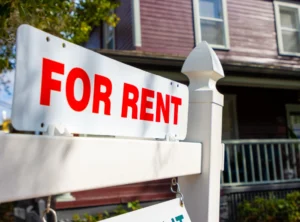Are You Driving Out Your Good Tenants?
Questioning landlord policies in ‘unsubsidized’ communities
by Robert Griswold
Q: In a past article you discussed a landlord’s responsibility with regard to handling nuisance tenants at a Section 8 community. I have a similar problem, but this is at a conventional apartment community without Section 8 tenants.
The police have been called to our complex and have even arrested tenants, but they simply get released the next day. Our landlord denies the problem completely, and refuses to take any action. So I am not sure I understand why a Section 8 landlord can address these serious problem tenant issues but my landlord can’t. Can you offer any suggestions as well as any feedback so I understand the difference?
A: The obligations of a landlord and/or the property manager to provide tenants with decent and reasonably safe housing are the same whether the property has Section 8 tenants or not. Your landlord or property manager should have policies and guidelines (or some use the less-friendly term “rules and regulations”) that encourage and promote a quality living experience for all tenants.
Of course, living in any multifamily community in close proximity to others will always require patience and understanding, but a good landlord or property manager will be fair, firm and friendly and enforce the rules uniformly with all tenants.
Some tenants may inadvertently create noise or a disturbance, and they should be warned by the landlord or property manager. If the problem tenants are decent people but just rude and unaware of their impact on others in the community, simply asking them to be more thoughtful and courteous may be successful.
So at the first indication of an issue, a verbal warning would be appropriate. But further violations should be documented in writing and detailed notes kept in the tenant’s file in case the problems continue unabated.
Repeat offenders or any tenant (or their family or guests) who are a danger to the community should be dealt with quickly and firmly, including eviction if necessary. Some landlords and property managers are facing much lower occupancies and are reluctant to reprimand or evict problem tenants.
This is not a good management decision and almost guarantees that the best tenants will soon get fed up and leave — and then all that will be left in the community are problem tenants who have no respect or regard for the rights of their neighbors to live quietly.
Once a building gets a bad reputation it can be a serious challenge for any owner or property manager to regain control and get the quality tenants to move back in. This sounds like what you are experiencing.
But it is not always just the lenient or short-sighted landlords and property managers who are to blame. Many landlords and property managers know that evicting a problem tenant has never been that easy, as the offending tenant will often come to court and be on their best behavior and deny causing any problems.
The courts then have to decide who is telling the truth, unless the landlord or property managers are able to bring witnesses who will verify the problems with the tenant.
As the economy has become more challenging and unemployment has risen dramatically in so many parts of the country, it is even more difficult to evict tenants without proof to the court that the tenant is a real nuisance.
Some courts have even implemented blanket moratoriums primarily on grounds that they want to give tenants more time to pay the rent — but a nuisance or problem tenant who is disrupting the community can also buy extra time based on the current mood of tolerance and forbearance found in many courts.
Another option that has been used successfully by tenants is to take their own legal action and sue the problem tenant in small claims court for breaching the rules and creating a nuisance. There have been many well-publicized cases around the country where this has been successful.
However, personally I see some serious concerns with this approach, as often the problem tenants are a threat and it can certainly create a hostile environment.
Also, the likelihood of actually prevailing in court and ever collecting on a monetary judgment is limited, and even just a change in behavior may be short lived, as the court does not retain any control over the matter in the future.
You also mention that problem tenants living in apartment communities that accept Section 8 tenants may have different solutions, so let me take this opportunity to offer some information on why it can be easier for a landlord or property manager to handle complaints about a disruptive Section 8 tenant.
The Section 8 program is currently called Housing Choice and offers vouchers to qualified tenants that they can use to pay a substantial portion of their monthly rent and utilities, as the tenant is required to pay only 30 percent of their income toward the housing costs and the local housing authority administering the program (using federal funds from the U.S. Housing and Urban Development Department) pays the balance.
The Housing Choice vouchers are accepted by landlords and property managers. Some landlords believe that the Section 8 program is an administrative burden or has other disadvantages. The key is the attitude of the local housing authority and its willingness to get involved and work with the landlord or property manager when faced with a problem tenant.
When there are excellent local housing authorities that are properly staffed with caring and competent workers, there is a distinct advantage in that the landlord or property manager has some added clout with the Section 8 tenants if they disturb their neighbors or do not obey the rules of the community.
The landlord or property manager is able to contact the Section 8 representative at the local housing authority as an additional resource to seek compliance by the tenant.
If the tenants or their families or guests are committing serious violations of the community rules, they run the risk of losing their Housing Choice voucher.
With the government paying a significant portion of their monthly housing costs, the motivation to abide by the rules and live quietly without disturbing one’s neighbors is very high. So often a quick and simple call to the Housing Choice contact for that tenant will solve the problem for the benefit of everyone in the community.
This column on issues confronting tenants and landlords is written by property manager Robert Griswold, author of “Property Management for Dummies” and “Property Management Kit for Dummies” and co-author of “Real Estate Investing for Dummies.”
E-mail your questions to Rental Q&A at [email protected]. Questions should be brief and cannot be answered individually.













 Accessibility
Accessibility